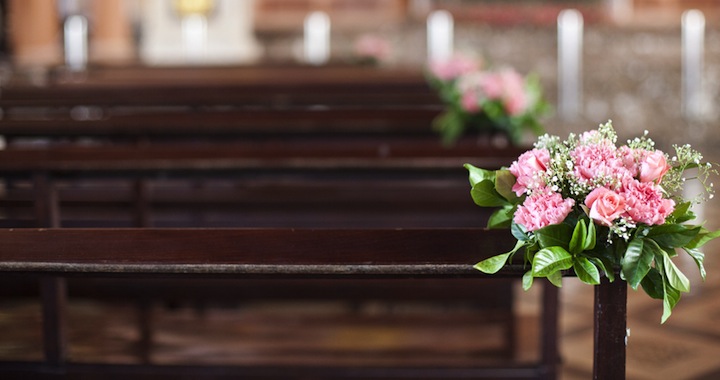I was asked by my friend, Audrey, at the GLAD Alliance (Gay & Lesbian Alliance of Disciples) to respond to the question in the subject line above. For some, the Church is the final bastion in the culture war to preserve the notion held by some of “traditional family.” For others, marriage is merely a civil contract, in which organized religion should have no part.
I think both are wrong.
Yes, the Church should care about marriage, but not in order to maintain a position of moral authority in the culture. It should care about marriage, whether it involves two people of the same sex or of the opposite sex. I do believe that marriage, specifically, should be separated from the state’s powers to recognize civil unions, and that there should be no legal privileges or rights tied to the ritual of marriage. It should simply be that: an act performed before God and others to make an important statement.
Marriage is covenant: First of all, at the heart of what has become the marital-corporate machine is still a simple but profound covenant – a holy promise – made between two people in love. But there’s more to covenant than that; a true covenant requires commitment from the larger community to help uphold that covenant as well. The marriage ceremony is an opportunity for all to recognize this covenant and to begin holding one another accountable for maintaining it.
Marriage is sacrament: Technically, I believe that a couple doesn’t actually need a wedding ceremony or even a state-recognized civil union to consider themselves “married.” For me, it is a promise made between one another and to God that is deeply personal. But the sacrament part of it is important too, particularly as it ties in to the point above. A sacrament literally means “an outward expression of an inward act.” So it begins with the personal bond forged by the personal covenant, but it is made sacred by the act of marrying before a gathering of peers and loved ones.
Related: The biblical definition of marriage and its relevance to marriage equality
Marriage is celebration: I love the joke about the minister who called in sick one Sunday morning and went to play golf. One hole after another, he hit holes in one. After shooting a miraculous 18 for the whole round, he was sure that God’s hand had blessed his incredible game. And then he realized that, since he had lied about what he was doing that day, he couldn’t tell a soul.
Our joys are exponentially multiplied when shared. And Church, at its best, should be a place where our joys are grown and shared, and our sorrows are borne together and made lighter. There are so few markers in our culture for important rites of passage. We tend too often to operate in relative vacuums, only connecting in transient or superficial ways. The Church provides the opportunity for people everywhere to come together for the purpose of celebrating life in its many forms. In as much as who we choose to marry is one of the most important decisions we ever make, it should be marked and celebrated as such.
As the socio-political landscape around marriage and civil unions continues to shift, there always will be a need in our society for covenant, sacrament and celebration. It’s my hope that, rather than taking particular moral positions that exclude particular groups from taking part, the Church as a whole recognizes it’s important role as servant and steward of these live-giving and truly holy moments in our lives.

